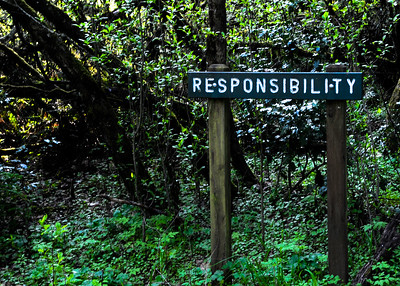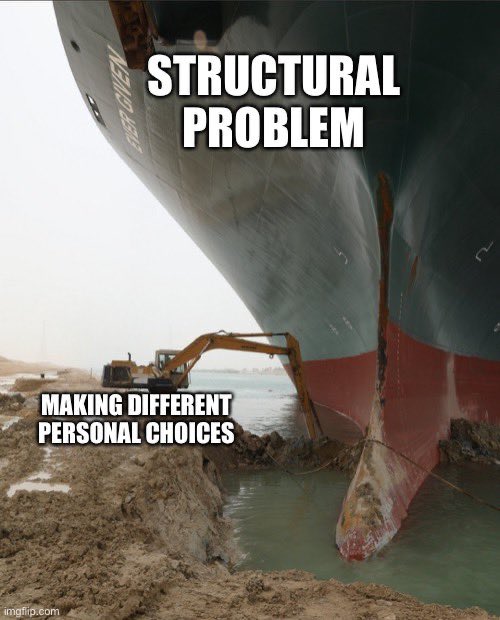In the Doghouse
Search
You are here: Home  Watchdogging
Watchdogging  In the Doghouse
In the Doghouse  The Corporate Cynicism Behind "Responsibility Month"
The Corporate Cynicism Behind "Responsibility Month"
 Watchdogging
Watchdogging  In the Doghouse
In the Doghouse  The Corporate Cynicism Behind "Responsibility Month"
The Corporate Cynicism Behind "Responsibility Month"The Corporate Cynicism Behind "Responsibility Month"
 You might not have noticed there's a quiet a battle for April. Not a battle fought on that day, nor for a person named April. The month of April. On one side are advocates for public health and lives that do not end in preventable deaths. On the other are the Big Alcohol corporations that benefit from the status quo. The battleground is something as simple, as stupid, and yet as powerful as a word.
You might not have noticed there's a quiet a battle for April. Not a battle fought on that day, nor for a person named April. The month of April. On one side are advocates for public health and lives that do not end in preventable deaths. On the other are the Big Alcohol corporations that benefit from the status quo. The battleground is something as simple, as stupid, and yet as powerful as a word."Responsibility."
This year, the organization Responsibility.org introduced a social media campaign titled "April is Responsibility Month". The campaign was specifically hinged on taking April's established Alcohol Awareness Month and replacing it with the concept of responsibility (with a hashtag). Their explanation relies on very assertive and utterly misleading language.
Awareness is important – how is one to eliminate an issue like drunk driving or underage drinking if one isn’t aware of the facts surrounding that issue or the effective strategies to implement in order to create change?
Yes, “awareness” is a crucial step in the fight against drunk driving and underage drinking. But, it is only the first step.
Equally critical -- if not more so -- is “responsibility.” If each organization and person – parent, teacher, college student, law enforcement official, judge, prosecutor, industry employee, and so on – were to take ownership and responsibility for eliminating these issues, drunk driving and underage drinking would decline at an even more rapid rate than they have over the last two decades (which is a lot, btw).
As it is currently carried out, April's Alcohol Awareness Month serves as a platform for organizations all over the government, health, and advocacy sectors to launch their own campaigns. These disparate campaigns each highlight the various needs to cut down on the ever-rising tide of alcohol mortality. This mortality derives from all sorts of proximal causes: violence, motor vehicle crashes, alcohol poisonings, overdoses primed by combining drugs and alcohol, agonizing deaths from liver failure and cancer, heart disease and neurodegeneration, and many more. The distal cause, though, remains the same: alcohol overconsumption.
By narrowing the spotlight to only shine on dangerous driving and underage use, Responsibility.org hides many, many deaths and injuries associated with alcohol. By claiming the central concern is "responsibility," the organization makes it seem like the problem is individuals. According to this framing, structural reforms do not exist and that producers could not possibly be expected to operate differently. The particular framing for "Responsibility Month" is even more cruelly misleading, as while underage drinking has been declining, the "rapid" rate was a product of the pandemic-related lockdowns. (In fact, last year, most measures of youth drinking went up compared to 2021.) The irony of including industry employees as a group that should be more "responsible" while not taking the responsibility for their own sloppy and misleading language is likely not lost on the authors of this campaign.
 Because, it turns out, the authors of this campaign are for all intents and purposes industry employees.
Because, it turns out, the authors of this campaign are for all intents and purposes industry employees.Responsibility.org is underwritten by a true rogue's gallery of Big Alcohol. Multinational megadistiller (and tireless opponent to any governmental health-related campaigns) Diageo heads up the list, with Bacardi and the binge-centered Jagermeister behind them. Most notable to Alcohol Justice supporters would be Constellation Brands, whose Mexico-based breweries have helped bleed the ground dry and who joined Responsbility.org only in 2022, after the Mexicali Resiste movement exposed their devastation and ground their construction efforts to a halt. But even smaller producers understand the value of preventing any serious action. Over 120 craft producers support the effort, including the Bay Area's 21st Amendment, and Buzz Ballz, whose high-alcohol content, heavily flavored, quirkily packaged, and sophomorically named offerings are probably the epitome of a youth-focused product.
The reach does not even end there, however. Aside from the Big- and Would-Be-Big Alcohol sponsors, Responsbility.org receives funding from all sorts of organizations interested in alcohol deregulation. Prominent among these is Amazon, whose bottomless appetite for monopoly has already lead to them planning a wide-set effort to destroy public health-oriented alcohol restrictions. Joining them are delivery companies Grubhub, Uber, and notorious tip-stealers Doordash--all groups that would like to make anytime, anywhere alcohol the law of the land, leaving "responsibility" the only remaining brake against harm. Lastly, as legalization continues, the cannabis companies GoPuff and Canopy have declared a vested interest in a world where the harm from substance use can only ever be the fault of the person experiencing it. (And Constellation also owns a major stake in Canopy, making it even clearer how corporate interests are aligning.)
Despite these many moneyed groups' claims to be reconceiving alcohol harm prevention, their favored tactic--to blame individuals--will likely struggle in growing. Not because we are too savvy, but because in the U.S., the public response has always been to reflexively blame people experiencing substance use issues. But true change, moving closer to an environment that is truly protective against alcohol-related death, harm, and misery, requires a big lift. The United States needs bold ideas like effective health labelling, alcohol ad-free public spaces, ABV-pegged excise taxes, and charge-for-harm tax and fee strategies have to be backed up by time-tested approaches such as retail availability limits, lower BAC thresholds for ticketing, and increased availability of alcohol-free youth activities. Those cannot be put forward through individual responsibility, only through collective pressure and care. And Big Alcohol should be held responsible for its cruel and deep-pocketed efforts to deny that.
Sign image by Nosha via Flickr, used under Creative Commons license.
Help us hold Big Alcohol accountable for the harm its products cause.
| GET ACTION ALERTS AND eNEWS |
STAY CONNECTED    |
CONTACT US 24 Belvedere St. San Rafael, CA 94901 415-456-5692 |
SUPPORT US Terms of Service & Privacy Policy |
Copyright © 2024 Alcohol Justice. All Rights Reserved.
Joomla! is Free Software released under the GNU General Public License.

